
Northfield appeals to Warren, Markey for Schell Bridge aid
NORTHFIELD — In the town’s latest effort to secure funding to replace the Schell Bridge, the Selectboard has sent a letter to U.S. Sens. Elizabeth Warren and Edward Markey seeking their support.The letter, which was recently sent to the senators’...

Shea Theater mural artist chosen out of 354 applicants
MONTAGUE — After reviewing submissions from 354 applicants, a steering group has selected North Carolina-based muralist Darion Fleming to paint a 3,200-square-foot mural on the east exterior wall of the Shea Theater Arts Center in Turners Falls.The...
Most Read
 Greenfield man arrested in New York on murder charge
Greenfield man arrested in New York on murder charge
 Former Leyden police chief Daniel Galvis charged with larceny
Former Leyden police chief Daniel Galvis charged with larceny
 Judge dismisses case against former Buckland police chief
Judge dismisses case against former Buckland police chief
 Greenfield Police Logs: April 9 to April 17, 2024
Greenfield Police Logs: April 9 to April 17, 2024
 Millers Meadow idea would ‘completely transform’ Colrain Street lot in Greenfield
Millers Meadow idea would ‘completely transform’ Colrain Street lot in Greenfield
 Greenfield’s Court Square to remain open year-round for first time since 2021
Greenfield’s Court Square to remain open year-round for first time since 2021
Editors Picks
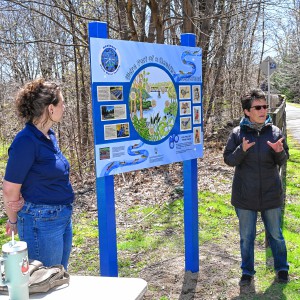 PHOTOS: Artsy and informative
PHOTOS: Artsy and informative
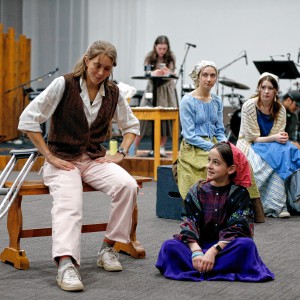 Photos: A musical classic returns
Photos: A musical classic returns
 PHOTO: Flowing falls
PHOTO: Flowing falls
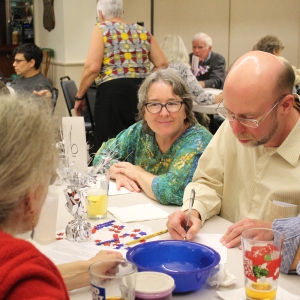 Regional Notebook: April 24, 2024
Regional Notebook: April 24, 2024
Sports

High Schools: Jakhia Williams propels Turners girls track past Athol
Jahkia Williams had a big day for the Turners Falls girls track and field team on Tuesday during a meet against Athol. Williams won the long jump (13 feet, 2.25 inches), 100-meter dash (13.4 seconds) and 200 (29.5), helping the Thunder pull out a...
 Softball: Jaylynn Chapalonis pitches Athol past Pioneer (PHOTOS)
Softball: Jaylynn Chapalonis pitches Athol past Pioneer (PHOTOS)
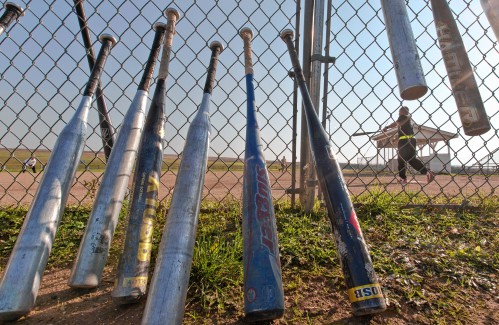 Bulletin Board: Greenfield Post 81 holding tryouts on May 4th, 5th and 11th
Bulletin Board: Greenfield Post 81 holding tryouts on May 4th, 5th and 11th
Opinion

Todd Damon: Liking the positive vibe of Greenfield lately
It feels like we’ve created a day for everything and everyone. It’s become a bit much, in my opinion. However, I do like recent letter writer Mary Collins’ idea of celebrating the communities we choose to call home. Her April 9 letter in the...
 Laurie Benoit: Volunteers needed for cleanup of Buckland cemeteries
Laurie Benoit: Volunteers needed for cleanup of Buckland cemeteries
 Patter Field: Northfield Bird Club wins award
Patter Field: Northfield Bird Club wins award
 Kim George: National Volunteer Week — hospice needs you
Kim George: National Volunteer Week — hospice needs you

Business

New Realtor Association CEO looks to work collaboratively to maximize housing options
SPRINGFIELD — As the Realtor Association of Pioneer Valley’s new CEO arrives to a Massachusetts housing market plagued by high prices and a lack of stock, he aims to work alongside elected officials to maximize the availability of different kinds of...
 New owners look to build on Thomas Memorial Golf & Country Club’s strengths
New owners look to build on Thomas Memorial Golf & Country Club’s strengths
 Cleary Jewelers plans to retain shop at former Wilson’s building until 2029
Cleary Jewelers plans to retain shop at former Wilson’s building until 2029
 Tea Guys of Whately owes $2M for breach of contract, judge rules
Tea Guys of Whately owes $2M for breach of contract, judge rules
 Primo Restaurant & Pizzeria in South Deerfield under new ownership
Primo Restaurant & Pizzeria in South Deerfield under new ownership
Arts & Life

Rescuing food and feeding people: Rachel’s Table programs continue to expand throughout western Mass
My great-grandmother’s oak dining table has graced my kitchen ever since my parents built the house in the 1980s. Looking at it makes me happy. The table — actually, almost any table — signifies history, nourishment, family and community.The...
Obituaries
 Maryjean DelRosso
Maryjean DelRosso
Heath, MA - Maryjean (Sullivan) DelRosso passed away peacefully on April 19, 2024 at Baystate Medical Center in Springfield after a long illness. She is survived by her devoted husband, Joseph DelRosso. Maryjean is also survived by thr... remainder of obit for Maryjean DelRosso
 Carol Butler Watelet
Carol Butler Watelet
Greenfield, MA - Carol (Virginia) Soucie Butler Watelet, 85, passed away suddenly and peacefully on April 20, 2024, joining the love of her life, Mr. Wonderful, Robert Watelet who passed away 2 years earlier. Carol was born on March 17,... remainder of obit for Carol Butler Watelet
 Raymond E. Scott
Raymond E. Scott
Raymond E. "Ray" Scott Bunnell, FL - Raymond E. "Ray" Scott, 78, of Bunnell, Florida passed away August 15, 2023. Ray was born in Yonkers, NY March 19, 1945. He was the son of Allan and Selva (Barney) Scott. Ray moved to Buckland as a yo... remainder of obit for Raymond E. Scott
 John Kubacki Jr.
John Kubacki Jr.
John Kubacki, Jr. Palm Bay, FL - John Kubacki, Jr., 75 years old, of Palm Bay, Florida died peacefully on Wednesday, April 17, 2024 surrounded by his loving family. He was born on October 8, 1948, the son of Irene and John Kubacki Sr. ... remainder of obit for John Kubacki Jr.

 Healey weighs in on campus safety, protests
Healey weighs in on campus safety, protests
 Man allegedly steals $100K worth of items from Northampton, South Deerfield businesses
Man allegedly steals $100K worth of items from Northampton, South Deerfield businesses
 My Turn: Still No. 1 in male mass shootings 25 years after Columbine
My Turn: Still No. 1 in male mass shootings 25 years after Columbine
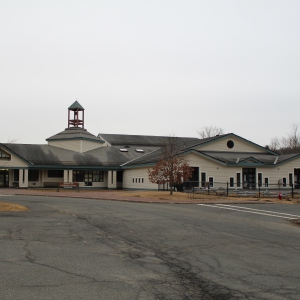 Building conversion, battery storage bylaws up for vote at Sunderland Town Meeting
Building conversion, battery storage bylaws up for vote at Sunderland Town Meeting
 Longtime moderator facing challenger in Ashfield election
Longtime moderator facing challenger in Ashfield election
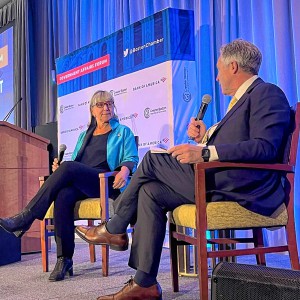 Spilka pledges ‘comprehensive climate bill’ in Senate
Spilka pledges ‘comprehensive climate bill’ in Senate
 Prescription Drug Take Back Day set for Saturday in 15 communities in Franklin, Hampshire counties
Prescription Drug Take Back Day set for Saturday in 15 communities in Franklin, Hampshire counties
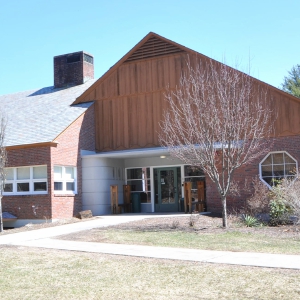 Leverett Town Meeting voters will decide cease-fire call, budgets
Leverett Town Meeting voters will decide cease-fire call, budgets
 High schools: Skyler Steele powers Frontier softball past Wahconah
High schools: Skyler Steele powers Frontier softball past Wahconah Bulletin board: Landon Allenby, Lucas Allenby shine at USA Snowboard and Freeski Association Nationals
Bulletin board: Landon Allenby, Lucas Allenby shine at USA Snowboard and Freeski Association Nationals Charlene Galenski: Blake Gilmore, a strong candidate for Deerfield’s Selectboard
Charlene Galenski: Blake Gilmore, a strong candidate for Deerfield’s Selectboard A day to commune with nature: Western Mass Herbal Symposium will be held May 11 in Montague
A day to commune with nature: Western Mass Herbal Symposium will be held May 11 in Montague Speaking of Nature: ‘Those sound like chickens’: Wood frogs and spring peepers are back — and loud as ever
Speaking of Nature: ‘Those sound like chickens’: Wood frogs and spring peepers are back — and loud as ever Hitting the ceramic circuit: Asparagus Valley Pottery Trail turns 20 years old, April 27-28
Hitting the ceramic circuit: Asparagus Valley Pottery Trail turns 20 years old, April 27-28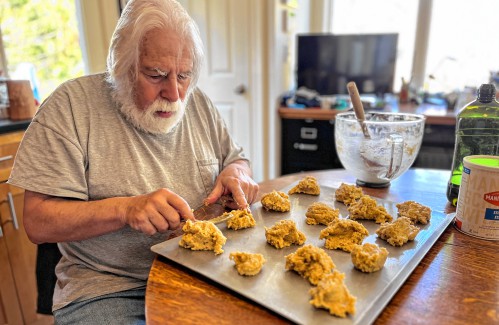 Best Bites: A familiar feast: The Passover Seder traditions and tastes my family holds dear
Best Bites: A familiar feast: The Passover Seder traditions and tastes my family holds dear
